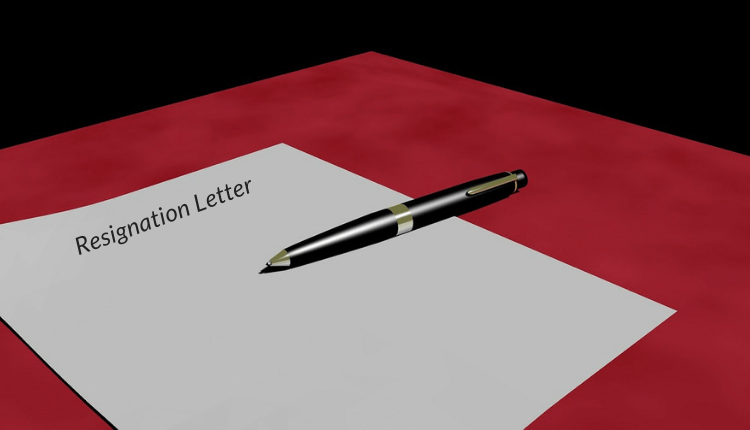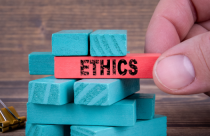Renowned Nutritionist Resigns Following Retraction of Six Research Papers

The reproducibility crisis is a serious concern for the scientific community. So is the frequency of cases of scientific misconduct. This crisis stems from the inability of researchers to reproduce the results found in many studies in the lab. As a result, several prestigious journals retracted a rising number of studies. Recently, the Journal of American Medical Association (JAMA) retracted six papers of Cornell University Professor and nutrition researcher, Brian Wansink. His consequent resignation has highlighted the seriousness of this crisis.
Dr. Wansink Among the Most Respected Nutrition Experts
Dr. Wansink founded the Food and Brand Lab at Cornell University. He is a leader in connecting human psychology and diet. He coined the phrase “bottomless bowls” to show how people tend to eat more depending on how big a portion size is. And, he was critical of food with what he termed “health halos”. This is a concept Dr. Wansink developed to describe unhealthy food items. He was renowned for hundreds of studies on these topics and many more health and food related issues.
However, despite these accomplishments, he found himself unexpectedly having to leave his post at Cornell. The statement came one day after the Journal of the American Medical Association (JAMA) retracted six of Dr. Wansink’s studies. The JAMA cited the lack of “scientific validity” in his articles. This is in addition to seven other papers that were previously retracted. Michael Kotlikoff, Cornell’s provost, said the investigation revealed “misreporting of research data, problematic statistical techniques, failure to properly document and preserve research results, and inappropriate authorship.”
Ongoing Speculation About Dr. Wansink’s Studies
Dr. Wansink admitted to making typos, statistical mistakes, and other errors in his studies. However, he continues to defend his work. He claims that these errors do not change the “substantive conclusions” of any of his studies and remains proud of all of his work. However, according to Dr. Ivan Oransky, this illustrates a serious case of scientific misconduct. He feels that these types of errors threaten the statistical basis and validity of research that the scientific journals publish.
However, this is not the first time Dr. Wansink faced allegations of scientific misconduct. An investigation into his work goes back to a blog post two years ago. In the post, many readers, including research integrity watchdogs, felt that Dr. Wansink was encouraging the practice of “p-hacking”. “P-hacking,” also called “data dredging,” is the manipulation of data to find results that are more appealing to publishers. This contrasts with the goal of providing clear, evidence-based results of an experiment. The results of “p-hacking” adulterated the correlation between foods and disease. In one study, a type of cheese may cause a heart disease. In another study published six months later, the same cheese may prevent heart disease. This example illustrates that the aim of research can sometimes be to get published, rather than to provide good information.
Causes and Effects of Regular Cases of Scientific Misconduct
“You can’t get a job if you don’t have papers,” says Marion Nestle, a professor of nutrition, food studies and public health at New York University. This highlights the tremendous pressure that professors and researchers face to get their studies published. Not only is this a serious concern in nutrition and food studies, but also in other fields of research. Scientists can look at a large data set and manipulate data to get the results that they want. Publishing in any journal is their only goal in these cases. As an example, emails sent by Dr. Wansink showed that he urged his researchers to alter their data to display results that would “go virally big time.”
“Going viral” seems to be more important than doing the difficult academic and scientific work. This situation represents a larger concern in the scientific community. There have been initiatives taken to try to counter this issue of scientific misconduct. The most important method is peer review. The situation with Dr. Wansink shows the need for these measures and more to reduce the cases of scientific misconduct.
As part of the academic community, what else should the researchers do to reduce the count of retractions? Please share your thoughts with us in the comments section below.










I believe that research is not just for getting job promotions in workplaces but also for finding meaningful solutions to societal problems too. This is the most important thing to understand in research. This, I think, will lead to research integrity. Researchers should be bold enough to publish what may seem contrary to what appears to be the usual thing as far as he has followed the scientific process and should not be afraid to report limitations in the process of his research no matter how “offensive” they may look.
Given that every scientist is a human being, subject to the powerfully corruptive influences of money, pride, fame, and fear, there are no effective external countermeasures, as the researchers and their watchdogs are subject to the same forces. There is only one real cure, and it must be internal. When most people begin to choose self control, integrity, and courage over fear or personal gain, then the problem will largely evaporate. Until then, every effort to curtail the problem will only produce more creative, convoluted, and desensitized ways of circumventing the countermeasures, and, in the end, more institutionalized cynicism.